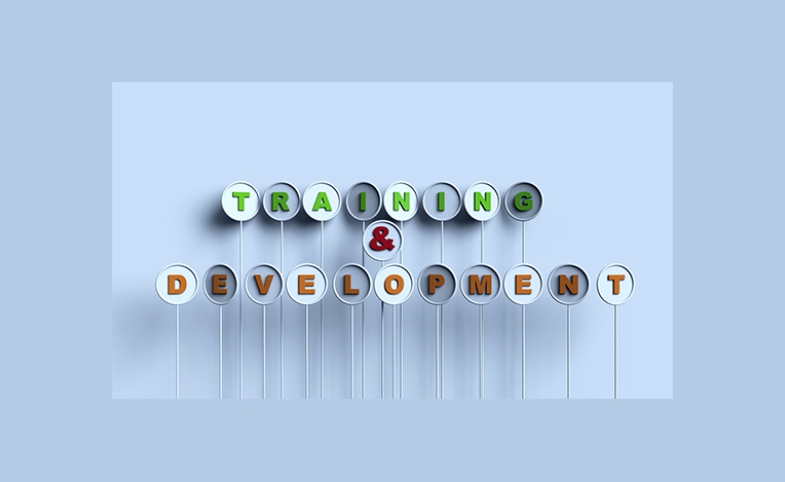Closing out the Spring semester is CPD's newest Mini-Course, "Data-Driven Public Diplomacy." We have expanded our offerings Spring CPD Mini-Course training schedule with new programs and some fan favorites. We...
KEEP READINGThe CPD Blog is intended to stimulate dialog among scholars and practitioners from around the world in the public diplomacy sphere. The opinions represented here are the authors' own and do not necessarily reflect CPD's views. For blogger guidelines, click here.

Updating Your Skills in 2021
The field of public diplomacy has been moving toward greater inclusion of digital technology and strategic thinking; the pandemic has accelerated these trends. While the basic reality of growing diplomatic fluidity and an expanding communication landscape for public diplomacy hasn’t changed, the needs and demands of practitioners are rapidly evolving.
Public diplomacy practitioners must now acquire broad-based digital skills; seek new models of engagement; and look to combine digital and physical capabilities when social distancing requirements are loosened. The pandemic is also impacting the balance of power on the world stage, as the geo-political and geo-economic shifts continue apace. Nations must reassess and reconfigure where they most need to focus public diplomacy efforts.
These dynamics have heightened the urgency to build capabilities and to close skill gaps in public diplomacy. This is certainly not a unique challenge facing public diplomacy. Digital transformations are creating new in-demand skills and shortening skills’ half-life that organizations look for. Few would debate that now is the time to invest in reskilling and upskilling to prepare for the future of the practice. As the noted diplomat Bill Burns writes in his memoir, The Back Channel, “[u]pdating our knowledge and skills is a critical factor in molding a new diplomatic doctrine.”
Public diplomacy is about creating and maintaining relationships. Broadening and deepening relationships in this new global landscape requires refreshing our skills and building new skills.
Given the broad range of activities by a wide array of organizations and entities that can be considered public diplomacy, it is most appropriate to view public diplomacy as a community of practice with a set of common knowledge and skills, and a shared professional vision and identity. Professionalizing the field of public diplomacy will require research and theory to bound the intellectual discipline as well as professional education to sharpen skillsets with recognizable curriculum.
For more than a decade, CPD’s training academy has served public diplomats and international communication professionals looking to develop their skillsets and analytical capabilities. From its flagship Summer Institute, to a broad set of in-person and virtual mini-courses, the academy provides an opportunity for practitioners to spend time engaging with peers and professors in a setting that presents a forward-looking public diplomacy curriculum that is both evidence-based and solution-driven. It represents an opportune time and place to reflect and build public diplomacy toolkits, while drawing on the latest scholarship, cutting-edge communications tools and network-building opportunities designed to improve every aspect of the practitioners’ PD strategy and implementation.
Contemporary public diplomacy knowledge and skills types are manifested in four main areas:
- Foundational knowledge of the field that encompasses both new thinking and enduring challenges concerning the practice. This includes exploring the core principles of public diplomacy in the contexts of disruptions in geopolitics and technology, the latest social science research, and the changing communication landscape and media consumption habits.
- Data analytics and evaluation that focus on how we drive strategic insights from various forms of data for better planning. This entails an understanding of basic computing and data concepts (e.g., machine learning; artificial intelligence; text, multimedia, geospatial, and big data) and their practical applications in the context of public diplomacy; evaluation approaches, methods, tools and models, including common quantitative and qualitative methods that can be integrated into formative and back-end evaluations, from audience segmentation to impact assessment.
- Next-generation storytelling and content creation that enables content development across platforms in innovative and engaging ways, from creating effective, strategic narratives, learning and leveraging storytelling practices from the creative sector, to developing skillsets in creating digital, social content, and immersive stories through virtual reality and augmented reality tools.
- Organizational leadership for public diplomacy success that demonstrates communication leadership in this age of contentious global politics and culture; reshapes approaches to organizing public diplomacy responsibilities to better meet contemporary challenges; and reflects the requirements of engagement with not just foreign, but also domestic and “in-between” diaspora publics as well as unlikely coalitions of actors.
Public diplomacy is primarily about creating and maintaining relationships. Broadening and deepening relationships in this new global landscape requires refreshing our skills and building new skills. The pandemic may very well turn out to be a watershed moment that ushers in a new era of continuous education, as practitioners seek both personal and professional growth in response to the accelerating changes and disruptions in the field. It is therefore imperative that public diplomacy organizations demonstrate increasing commitment to professional development through incentives and resources and treat public diplomacy capability building with the urgency it demands.
Visit CPD's Online Library
Explore CPD's vast online database featuring the latest books, articles, speeches and information on international organizations dedicated to public diplomacy.
POPULAR ARTICLES
-
March 22
-
April 11
-
April 1
-
March 4
-
March 19
Join the Conversation
Interested in contributing to the CPD Blog? We welcome your posts. Read our guidelines and find out how you can submit blogs and photo essays >.













